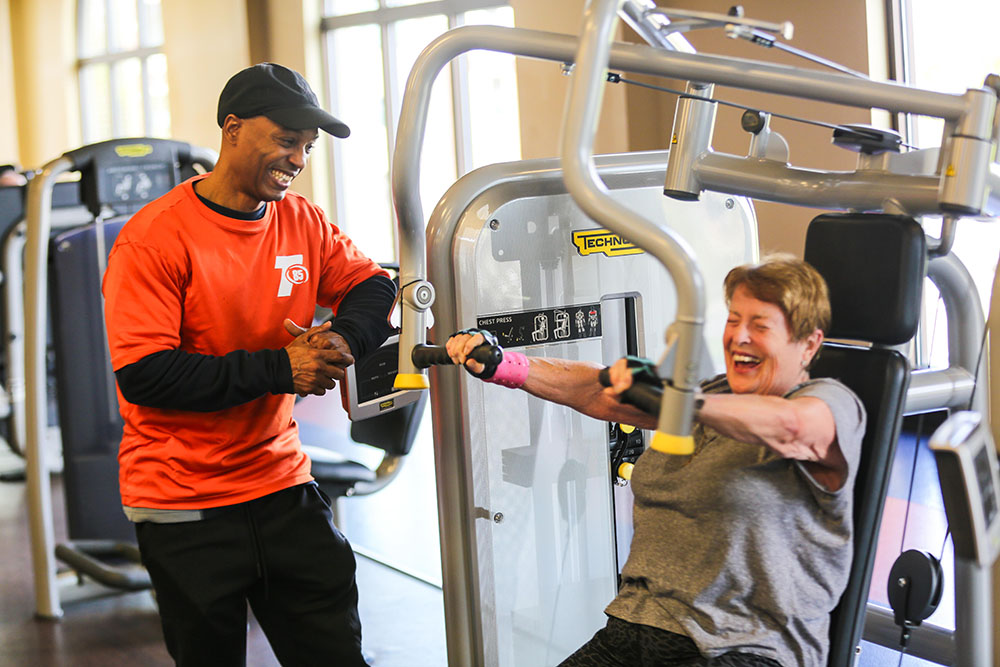Most obvious though, the real benefits of physical activities go way more than just body health and great-looking limbs; let this be a strong point of reminder here at Team85 Fitness & Wellness-the importance of adopting a holistic view of wellness, including how exercising impacts the brain and mental components of life. Through discussions based on science and expert testimony, this post will explore different manners by which regular participation in any form of activity can greatly impact mood and develop better mental wellness.
Understanding the Psychological Benefits of Exercise
The Science Behind Exercise and Mental Health
Besides bringing about changes in the body, exercise is a changing force to the psyche. It prompts the release of endorphins, those so-termed natural ‘feel-good’ chemicals that elevate mood and assuage pain. Regular physical activity also aids in the release of neurotransmitters like serotonin and dopamine, important in maintaining mood and subduing conditions like depression and anxiety.
Stress Reduction Through Physical Activity
Regular physical activity serves as a powerful de-stressor. From high-intensity interval training to a calm session of yoga and a brisk walk, exercise lowers the stress hormones cortisol and adrenaline while simultaneously boosting mood-enhancing chemicals. Such duality helps in alleviating not just stress but increases the ability of the body to deal with existing mental tensions.
Exercise Types and Their Mental Health Benefits
Cardiovascular Exercises: Running, Cycling, and Swimming
The exercises of cardiovascular activity have a particular efficiency for mental health. Running, cycling, and swimming improve heart rate and thus increase the production of endorphins. These activities have been linked with lower levels of anxiety, depression, and negative mood as part of improved self-esteem and improved cognitive function.
Strength Training and Mental Clarity
Such sports as weightlifting contribute not only to physical strength but also to mental health. Indeed, the data prove that moderate activities of muscle strengthening can reduce the symptoms of depression and improve cognitive function. Psychological benefits during strength training include developing the will to train with focus and determination.
Mind-Body Exercises: Yoga and Pilates
Mind-body exercises like yoga and Pilates emphasize controlled movements and breathing techniques, which can help calm the mind and reduce symptoms of anxiety and depression. These practices enhance the mind-body connection, promote relaxation, and can significantly improve mood and mental clarity.
Implementing a Routine for Optimal Mental Health
Creating a Balanced Workout Schedule
At Team85 Fitness & Wellness, we believe in the development of a well-rounded exercise routine that includes a variety of activities to engage both muscles and minds. You should incorporate various aerobic exercises, resistance training, and mind-body practices into your routine for comprehensive benefits you might experience in most spheres of life.
Setting Realistic Fitness Goals
It is important to set achievable fitness goals to keep oneself motivated and interested. Goals provide direction and a sense of purpose important for mental health. The attainment of small or big milestones in fitness can help improve self-esteem and give one a sense of achievement.
The Role of Fitness in Supporting Overall Well-being
Building a Supportive Community
Working out can be a lot more fun and motivating in a group setting. You get social support and encouragement during fitness classes or group activities, which means a lot for your mental state. Our community at Team85 Fitness & Wellness is designed for support, allowing members to connect with others while reaching their desired fitness and wellness objectives.
Professional Guidance and Support
Our training and guidance staff is in place to support members in achieving their fitness and mental health goals. Professional coaching will ensure that people are involved in activities that are healthy, safe, and enjoyable.
Conclusion: Embrace Fitness for Better Mental Health
Team85 Fitness & Wellness has been very instrumental in attempting to build a culture where the two become intertwined: fitness and mental health. They invite everybody to engage in that form of physical exercise that will give them peace as regards their mental state. Team85 Fitness & Wellness will teach you how incorporating fitness into your lifestyle can positively affect your mental well-being.
With comprehensive fitness regimens, and more important than anything above, community support, every tool and structure put in place at Team85 one will be better equipped to transform one’s body through the mind, knowing that regular body exercise is amongst dominant modifiers of emotional well-being into a positive direction, which will be for the benefit of attaining general states of wellness. Join us while we reach a new normal of high-level emotional states, and overall mental health driven by a fitness-charged high, with one challenging workout at every turn.








